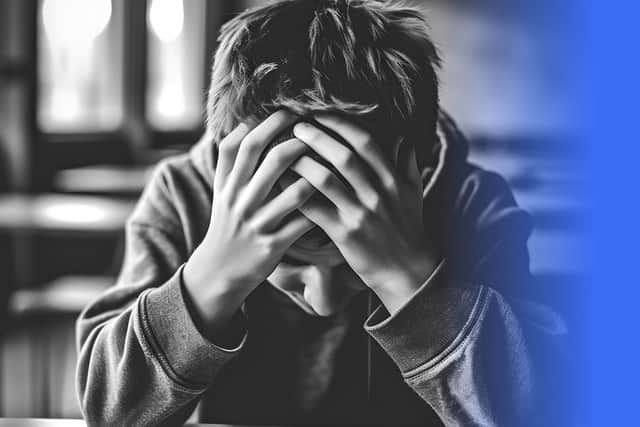Bullying: how to tell if your child is being bullied at school - and tips on what to do to help
and live on Freeview channel 276
While the start of a new academic year can be a fresh and exciting time for some children, for others, it can bring feelings of stress and anxiety.
There are many reasons for this: a shift in routine, a return to lessons they may struggle in, or, for this year in particular, concerns about the possibility of their schools being built with ‘prone to collapse’ concrete, also known as reinforced autoclaved aerated concrete (RAAC).
Advertisement
Hide AdAdvertisement
Hide AdBut an issue that crops up again and again for children who are apprehensive or even terrified about returning to school is, sadly, the prospect of bullying. Indeed, new research by anti-bullying charity The Diana Award for its #BacktoBullying campaign has revealed 65% of children are scared of going back to school, with a third saying the thought of returning to school makes them want to cry.
Martha Evans, the director of the Anti-Bullying Alliance (ABA), has warned that bullying can have serious implications on a child’s emotional development and future prospects, with the effects often lasting into adulthood. This is why she believes it’s vital that parents “are aware of the signs that their child might be on receiving end of bullying” - as well as what to do.
So how can you tell if your child is being bullied, and how is best to respond? Here are some top tips, according to what Ms Evans told PA Media.


What are the signs of bullying?
While some children may share their troubles with a sibling or parent, many don’t want to talk about what’s going on. That’s why it’s crucial to be aware of the signs, which Ms Evans says include:
- Coming home with torn clothes or missing belongings
- Unexpectedly not wanting to go to school
- Complaining of unexplained illnesses or headaches
- Becoming quiet and withdrawn
Advertisement
Hide AdAdvertisement
Hide AdThe first of these could indicate a child is “being picked on physically”, Ms Evans explained, while complaining of feeling unwell often crops up as “the stress of bullying can create physical symptoms”. Alternatively, a child could make up an illness to avoid going to school.
Ms Evans also urged parents to look out for children who look upset when using phones or other electronic devices. “Online bullying is particularly hurtful,” she said, “as it follows a child even after they’ve left the school gates and can continue 24/7.”
Parents should also watch out for children who want to arrive at school much earlier than necessary, or who leave school later - as this may be an attempt to avoid other pupils. “This is a sure sign something is wrong,” Ms Evans pointed out.
What should you do if your child is being bullied?
1. Stay calm
It’s natural to feel upset or angry if you hear your child is being targeted, but it’s best to focus on speaking calmly and gently to your child - and listening to what is going on, Ms Evans suggested. “Your job is to reassure them that it can be sorted out.”
2. Get the facts
Advertisement
Hide AdAdvertisement
Hide AdThe next step is to establish what has happened, when it happened, and who did what. “You can keep a diary of the pattern of bullying which will be helpful to share with the school, if and when you speak to them,” she said. Ms Evans advises speaking to the school, and asking for their anti-bullying policy, so a process can be started to help your child.
3. Find out what your child wants
Children can feel helpless when they are being bullied, so it’s a good idea to ask them what they want to happen next. That way, they can identify their choices, consider the potential next steps to take, and feel empowered to seek help to stop the bullying.
4. Tell them not to retaliate
According to Ms Evans, parents should not encourage their child to retaliate to bullying, especially through violence, as it can have negative and unpredictable results. “They may be hurt even further, or be seen by those in authority as the problem,” she warns, and suggests instead that parents tell them to walk away and get help.
5. Be aware of mental stress
“Bullying can have a considerable impact on a child’s mental health,” warned Ms Evans, so it’s important not to underestimate how they could be feeling. “If your child is showing signs of serious distress, such as depression, anxiety, and self-harm, always see a GP.”
6. Don’t let them blame themselves
Advertisement
Hide AdAdvertisement
Hide AdSomething the Anti-Bullying Alliance has noticed is that children can think they are in some way to blame for being bullied. So it’s important to reassure your child that this is not the case. Ms Evans commented: “Make it clear that bullying is never acceptable and if a child or young person is being bullied then it’s others who are to blame, not them.”
Comment Guidelines
National World encourages reader discussion on our stories. User feedback, insights and back-and-forth exchanges add a rich layer of context to reporting. Please review our Community Guidelines before commenting.
